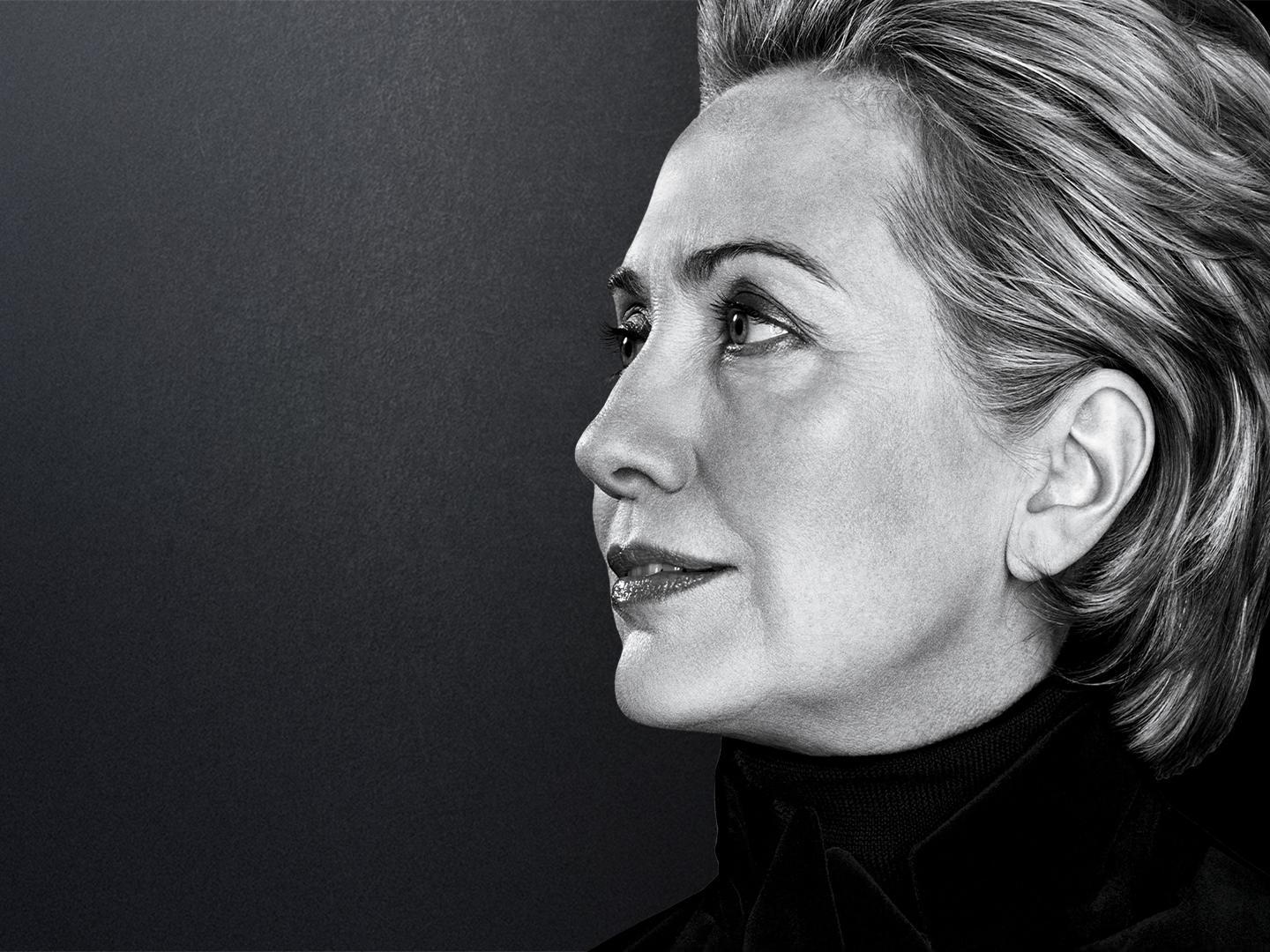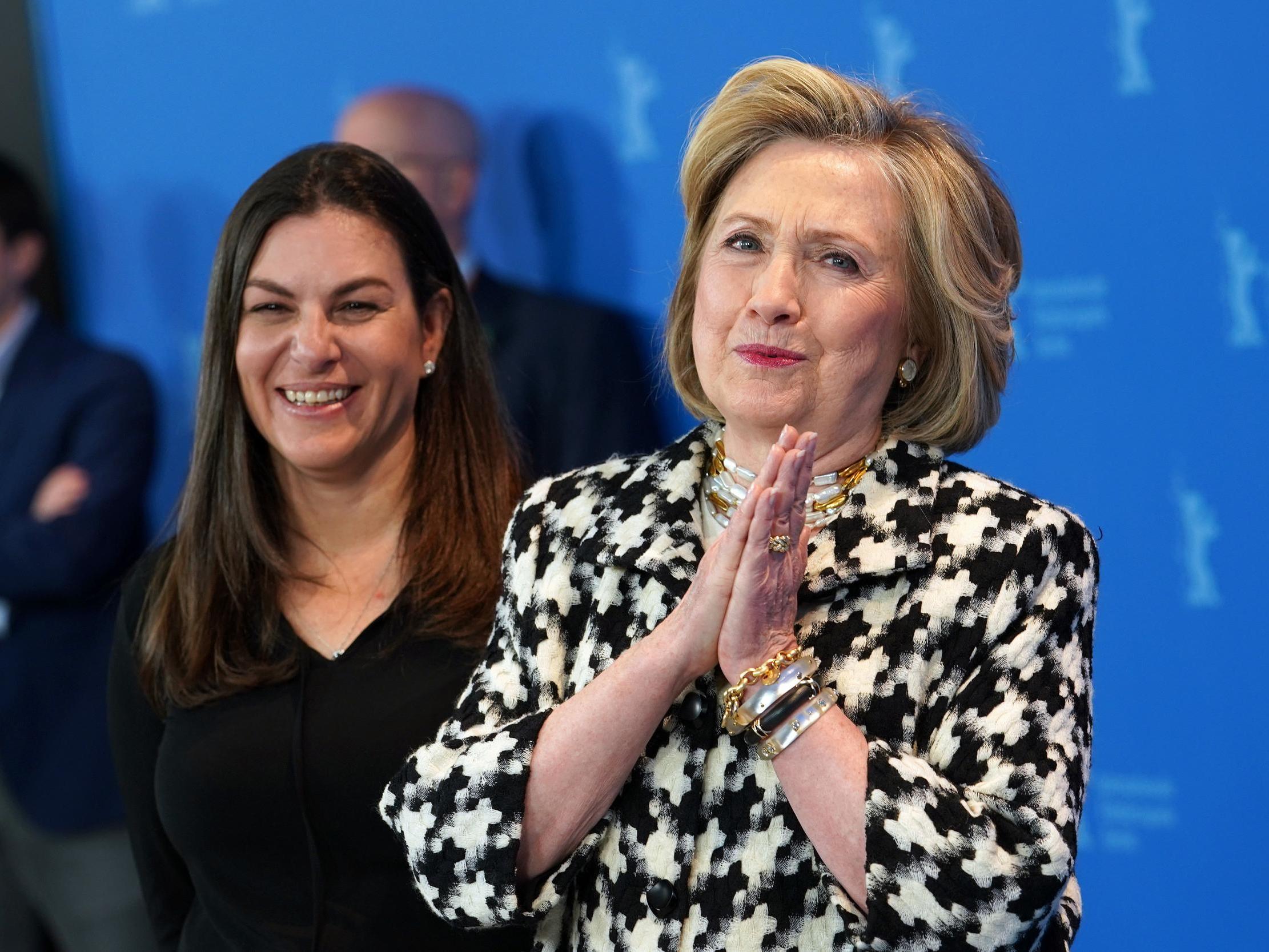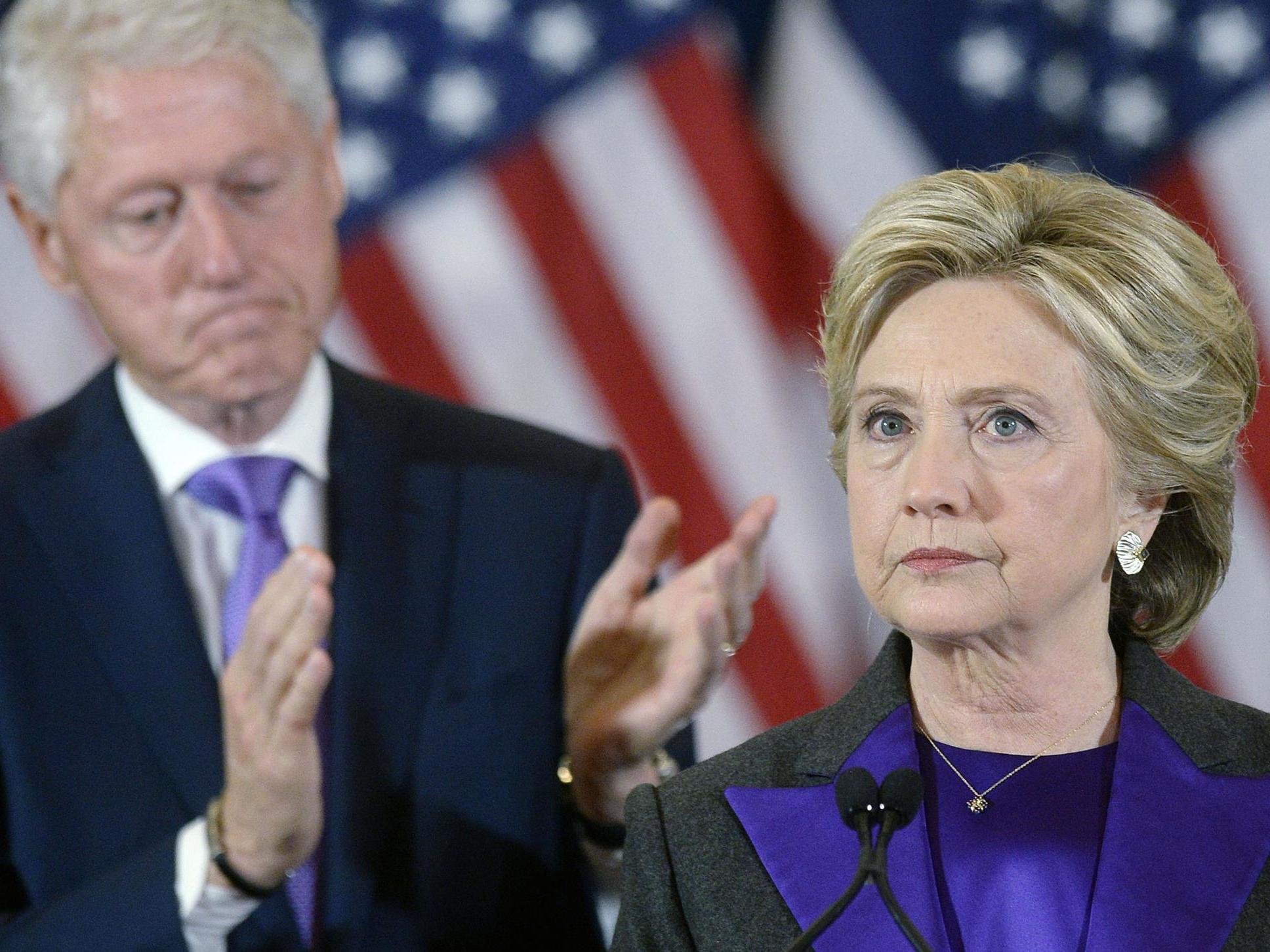‘One Republican told me he’d rather stick needles in his eyes than appear in my Hillary Clinton documentary’
The Oscar-nominated filmmaker behind ‘Hillary’, Nanette Burstein, talks to Ellie Harrison about why the former Democratic nominee was such a polarising figure, what it was like to interview Bill Clinton about his infidelity and why the US is yet to have a female president


Your support helps us to tell the story
From reproductive rights to climate change to Big Tech, The Independent is on the ground when the story is developing. Whether it's investigating the financials of Elon Musk's pro-Trump PAC or producing our latest documentary, 'The A Word', which shines a light on the American women fighting for reproductive rights, we know how important it is to parse out the facts from the messaging.
At such a critical moment in US history, we need reporters on the ground. Your donation allows us to keep sending journalists to speak to both sides of the story.
The Independent is trusted by Americans across the entire political spectrum. And unlike many other quality news outlets, we choose not to lock Americans out of our reporting and analysis with paywalls. We believe quality journalism should be available to everyone, paid for by those who can afford it.
Your support makes all the difference.At around 11am on 9 November 2016, a broken and bewildered Hillary Clinton was on her way to The New Yorker hotel in midtown Manhattan to give her concession speech. She had just lost out on the US presidency to Donald Trump. “There were people crying on the sidewalks, holding their children up in the air,” she recalls. “It was like a death. I was totally emotionally wrecked, I felt like I’d let everyone down. It didn’t make sense.”
This reflection is one of many spine-tingling moments in Hillary, a four-part docuseries telling the tumultuous story of Clinton’s life, “unvarnished from beginning to end”. What began as 2,000 hours of campaign footage ended up being a deep dive into every facet of the former Democratic nominee’s experience, from the way partisan politics became entrenched in America during her rise through the ranks, to how she influenced the arc of the women’s movement.
Made by Nanette Burstein, known for her Oscar-nominated 1999 boxing documentary On the Ropes, Hillary looks back on Clinton’s school years, her much-scrutinised marriage to Bill, her rousing speeches as First Lady and her rocky campaign journey – from the personal email controversy to Russian interference.
The access is exceptional. We are taken behind the scenes as an ecstatic Clinton beats Bernie Sanders in Iowa by a razor-thin margin. We see crisis meetings between Clinton and her staff as they plot how to compete against Trump. Burstein interviews Clinton’s daughter Chelsea and husband Bill, Barack Obama, childhood friends, advisers and journalists.
Burstein wanted to avoid a hagiography – although her documentary certainly is sympathetic – and so she invited several of Clinton’s critics to be interviewed. “They all said no,” she tells me over the phone from New York’s Catskill Mountains. “One after the other. She is so toxic for that constituency.
“If they appear in a documentary on Hillary, even though I have creative control and I’m being objective, there’s no upside for them. They know she is in some way participating, so it won’t crucify her. They have zero interest in any kind of association with her other than railing against her. It’s a perfect example of partisan politics.”
One such Republican – Newt Gingrich, the former speaker of the House of Representatives, who impeached Bill Clinton in 1998 and advised Trump on his run against Hillary – told Burstein he would “rather stick needles in my eyes than do the interview”. She laughs at the memory. “I was like, ‘OK, I get it.’ It was pretty unequivocal.”
While Burstein couldn’t get an interview with the man who was hell-bent on taking down the former president, she did secure several days’ worth of interviews with Bill Clinton himself. Burstein was “incredibly upfront” with Hillary about why the documentary should encompass her personal life, and within that her marriage and Bill’s infidelity. “I felt it did affect her political life enormously,” she says. “If we didn’t talk about it, it would feel very secretive and be dissatisfying for an audience. Hillary understood that.”
And so did Bill. He’s as candid as we’ve ever seen him in his interviews with Burstein. He fights back tears when speaking about his affair with White House intern Monica Lewinsky. “It was awful,” he says. “I feel terrible about it.” His hands shake as he recalls telling their daughter Chelsea what he’d done. “I just hated to hurt her,” he says.
“It is very intimidating to sit across from a former president and ask him about an affair he had with an intern, and how he felt that affected his wife,” says Burstein. “I have deep respect for him and it’s tough, but it had to be done.”
Burstein’s interviews with Bill lasted several days, at his insistence. “He was willing to be open in a way he never has before and I think he really, really wanted to do it for Hillary,” she says. Bill had also previously given a “defensive” answer to a journalist who asked about Lewinsky, and Burstein thinks he saw this series as his chance to rectify that.
As for Hillary, she found the interviews on Bill’s infidelity so painful, and held so much back, they had to do them twice. “The first time it was just so hard for her,” says Burstein. “She’d not go into detail on certain questions and wanted it to be over with quickly.” On camera, Hillary blinks away tears at the memory of Chelsea holding her parents’ hands amid the scandal, as if to bind them back together. She looks jaded, closing her eyes as she recalls her biggest disappointments.
Was anything off limits? Burstein says the Clintons didn’t lay down any rules, but she made a “personal decision” not to talk about Juanita Broaddrick, who accused Bill of rape, or about any of the other sexual assault allegations made against him. “They’re so complicated that you’d have to spend a really long time trying to unpack them,” she says. “And then it would be like, who’s this film about? Once you open that door you have to walk all the way through and it becomes more about his story than hers.”

The documentary feels like it’s about something bigger than Hillary, though. It poses the question: can a woman win the US presidency? And if not, why not? Hillary’s gender is inextricable from her story. When Bill ran to be governor of Arkansas for the second time in 1982, she was pressured by voters to take his name. She ditched her glasses and wore contact lenses, replaced frizzy hair with sleek blow-dries and swapped practical clothes for elegant dresses, all to help further his career. She experienced blatant sexism as senator of New York in the 2000s, with men yelling “iron my shirt!” during her speeches. The misogyny was subtler but still very present during her presidential campaign: she was depicted as cold and calculating, many judged her for not leaving Bill but didn’t judge him for his unfaithfulness, Trump accused her of “playing the woman card” constantly. On top of this, Hillary spent a total of 25 days in the make-up chair during her campaign, when men spend far fewer. “She made the superficial concessions she needed to make to get into a position of power and affect change,” says Burstein. “The ends justify the means.” But the ends, as it turned out, were failing to win the presidency, which begs the question – where did Hillary go wrong?
This is what Burstein’s documentary aims to understand: why Hillary was such a polarising figure. The director believes it’s because she was pushing boundaries to get into a position no woman had before. But Barack Obama pushed boundaries, and he was nowhere near as divisive. “Right,” says Burstein. “And he was an African-American president. I was really shocked we had an African-American president before we had a woman. I could not have predicted that. But it’s because men lead, men are strong, men represent the commander-in-chief role in our brains in a way that a woman can’t. That’s more to do with our gender symbols than our race.”

Burstein sees many parallels between Hillary’s race to be Democratic nominee, and that of Elizabeth Warren, who bowed out in March following disappointing results on Super Tuesday. “Again, there was this unconscious bias against Warren,” says Burstein. “I never understood why Bernie Sanders – who has the same kind of policies as Warren, but to me are less thought-out – was so much more popular. What could be the reason other than gender? When Hillary ran in 2016, people would say, ‘I would vote for a woman, just not that woman.’ It was exactly the same thing for Warren.”
Hillary was released in America in March, and has made some people who previously reviled her change their minds. They told Burstein they wished the series had come out before the election. Burstein says that wouldn’t have worked. “People want politicians to be open and honest and emotional, but when they are, we end up torturing them for it,” she says, pausing to think how Hillary is perceived. “Her fans are rabid and they put her on a pedestal, yet on the other side they think she kills babies. In reality, she’s somewhere in the middle.”
No one is more aware than Hillary of how hated and adored she is – and she’s learned to live with it. In fact, Clinton’s final words in the documentary are perhaps the most revealing, implying that her political career is not her biggest driving force. “There have been rough spots and detours and ups and downs,” she says as the credits roll. “But at the end of the day, I’ve loved and been loved and all the rest is background music.”
‘Hillary’ begins on Sky Documentaries at 9pm on 11 June
Join our commenting forum
Join thought-provoking conversations, follow other Independent readers and see their replies
Comments